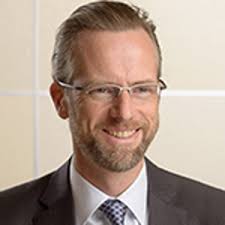Staying active in changing times: an oldie but a goodie
The world’s largest active-only fund manager visited last week last week. Andy Budden, Singapore-based investment director with the Capital Group, said the philosophy behind the US$1.8 trillion asset manager’s flagship global equities fund remained as relevant today as it did on its launch 45 years ago.
A frequent visitor to Australia and New Zealand, Budden said, while in New Zealand: “Capital launched the New Perspective fund in 1973 to help Americans invest globally at a time when the world was going through major changes. The idea was that investing in companies exposed to those changes would be rewarding for clients.
“And that’s still relevant today when the some really important changes are happening in the world.”
The almost US$84 billion New Perspective fund has achieved annualised after-fee returns of about 13.7 per cent over the last 10 years and just under 12 per cent since inception.
“There’s huge opportunity in change.”
He said current Capital change-themes include digital disruption, healthcare, modern consumption trends (especially in emerging markets) and global trade tensions.
While Capital has registered a dozen of its Australian-domiciled products in NZ under the trans-Tasman mutual recognition rules, the manager is focusing on the New Perspective and emerging markets-flavoured New World funds in its first foray across the ditch for some time.
Budden, and Capital head of wholesale Australia, Jorden Brown, campaigned in NZ’s three major cities last week as part of the Heathcote Investment Partners ‘Meet the Managers’ tour.
Despite its large global presence and long history in Australia, Capital is relatively unknown in NZ. The group, whose roots go back to 1931 in the US (where it is famous for the ‘American Funds’ family), initially targeted the Australian institutional market via third-party representation before opening a Sydney office seven years ago. Capital has since broadened its focus to include the Australian financial advisory market, an approach it plans to emulate in NZ.
In its home US territory, Capital offers about 100 products spanning fixed income and shares across multiple strategies. According to Budden, the group boasts about 400 investment specialists, of which about half sit on the equities side of the equation.
He said the manager has stuck by its active principles despite the rising tide of index-trackers that has swamped the investment market over the last decade.
“We don’t have a passive capability – and don’t intend to have one at this time,” Budden said. “We’re not emotionally against passive management – in fact, it has a role. But when looking to deliver long-term objective-oriented returns to investors, active management can provide significant value after fees.”
Indeed, during a period when “active management has been under siege, Capital has both grown its business and generated ‘alpha’, he said.
The passive management trend may even help “good active managers”, Budden said, by clearing the industry of deadwood quasi index-huggers.
Capital, he said, has maintained its active credentials in a couple of ways. Firstly, the manager eschews benchmarks when building portfolios, focusing instead on client “investment objectives” for each fund.
“And secondly, there is the ‘Capital System’,” Budden said.
The Capital method is predicated on giving portfolio management responsibilities to individuals rather than “committees”.
“Portfolio managers – and, notably, analysts as well – are assigned a portion, or sleeve, of the overall investment offering to manage independently, enabling them to focus on their highest conviction ideas,” Capital says.
Budden said the end result is a “high conviction” portfolio as opposed to a concentrated basket of stocks.
“We’re obsessed with high conviction but we’re also obsessed with diversity,” he said.
For instance, the New Perspective fund currently holds about 240 stocks, mostly of multi-national companies positioned to benefit from thematic change.
“But it’s all about the stocks,” Budden said. “We look for exciting, high-quality multi-national companies across the world and the trends come out of that.”
Overall, he said investors likely face a period of lower returns, rising volatility… and change.
“In a fairly challenging investment environment there are still lots of good things happening,” Budden said; just like in 1973.
– David Chaplin, Investment News NZ










